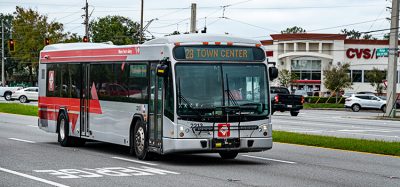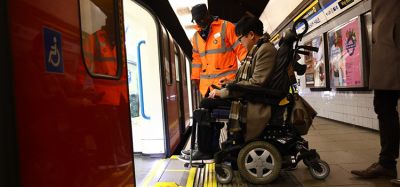Region-wide transit survey to determine passenger demand in Texas
- Like
- Digg
- Del
- Tumblr
- VKontakte
- Buffer
- Love This
- Odnoklassniki
- Meneame
- Blogger
- Amazon
- Yahoo Mail
- Gmail
- AOL
- Newsvine
- HackerNews
- Evernote
- MySpace
- Mail.ru
- Viadeo
- Line
- Comments
- Yummly
- SMS
- Viber
- Telegram
- Subscribe
- Skype
- Facebook Messenger
- Kakao
- LiveJournal
- Yammer
- Edgar
- Fintel
- Mix
- Instapaper
- Copy Link
Posted: 29 January 2020 | Sam Mehmet (Intelligent Transport)
Funded through a partnership between the North Central Texas Council of Governments (NCTCOG), Dallas Area Rapid Transit (DART), Denton County Transportation Authority and Trinity Metro, the surveys will be conducted in two phases.


The first phase of a region-wide transit survey in Texas will begin in February 2020, Dallas Area Rapid Transit (DART), McKinney Avenue Transit Authority and Trinity Railway Express (TRE) have announced. Passengers will be asked to help planners determine the demand on the transportation system.
Upon boarding, riders on the larger DART bus routes (at least 1,000 riders per day) will be handed cards by surveyors. DART and TRE trains passengers will be asked at what station they will get off. The M-Line Trolley will also be included in this survey.
A subsequent interview survey will be conducted involving DART, MATA, Dallas Streetcar and TRE passengers to collect information about their trips, the fare and demographics. In most cases, this will occur through an interview by the surveyors. On express routes, passengers will be asked to fill out a paper questionnaire about their use and thoughts on Texas transit.
Questions regarding the passengers’ starting locations and destinations will provide details about why people are choosing transit and aims to create an image of how the system is used. The survey information aims to allow transit agencies to better address demand and to plan future transit needs.
“As our region continues to grow, transportation choices are becoming more important so we can adequately serve the needs of people who live, work and go to school in North Texas. Our growing transit system is one of those choices people use every day to reach their destinations,” said Arash Mirzaei, a NCTCOG Senior Program Manager. “The transit survey collects a sample of trip and user characteristics every five years. The data is collected through voluntary participation by the transit users. What we learn through the analysis of this data is essential in providing equitable and effective transit services in the region.”
Related topics
Fleet Management & Maintenance, Infrastructure & Urban Planning, Passenger Accessibility, Public Transport
Related cities
Texas
Related organisations
Dallas Area Rapid Transit (DART), McKinney Avenue Transit Authority, Trinity Railway Express (TRE)
Related people
Arash Mirzaei








